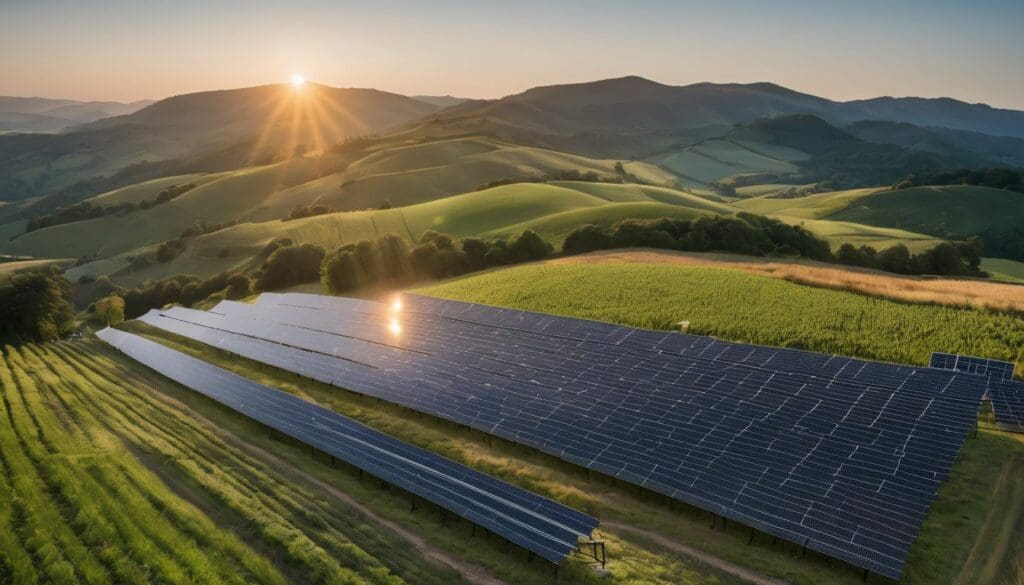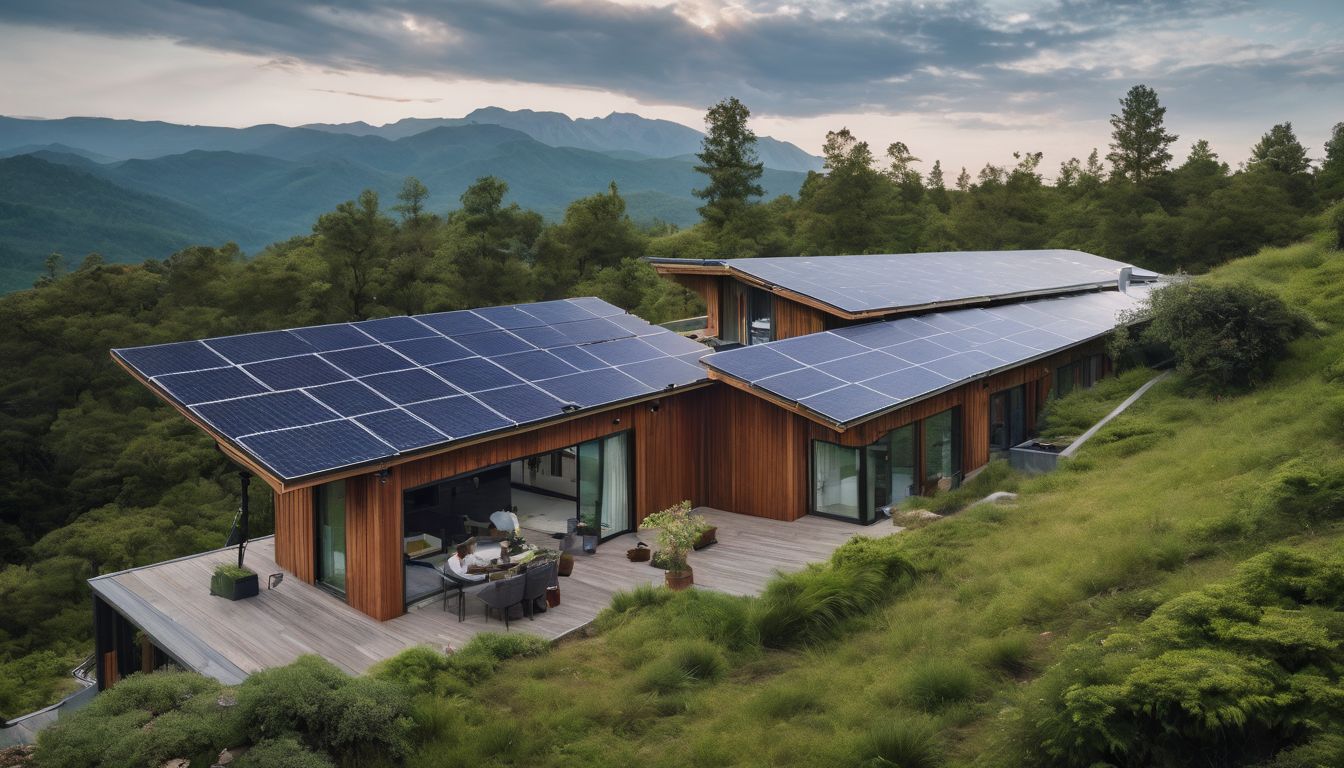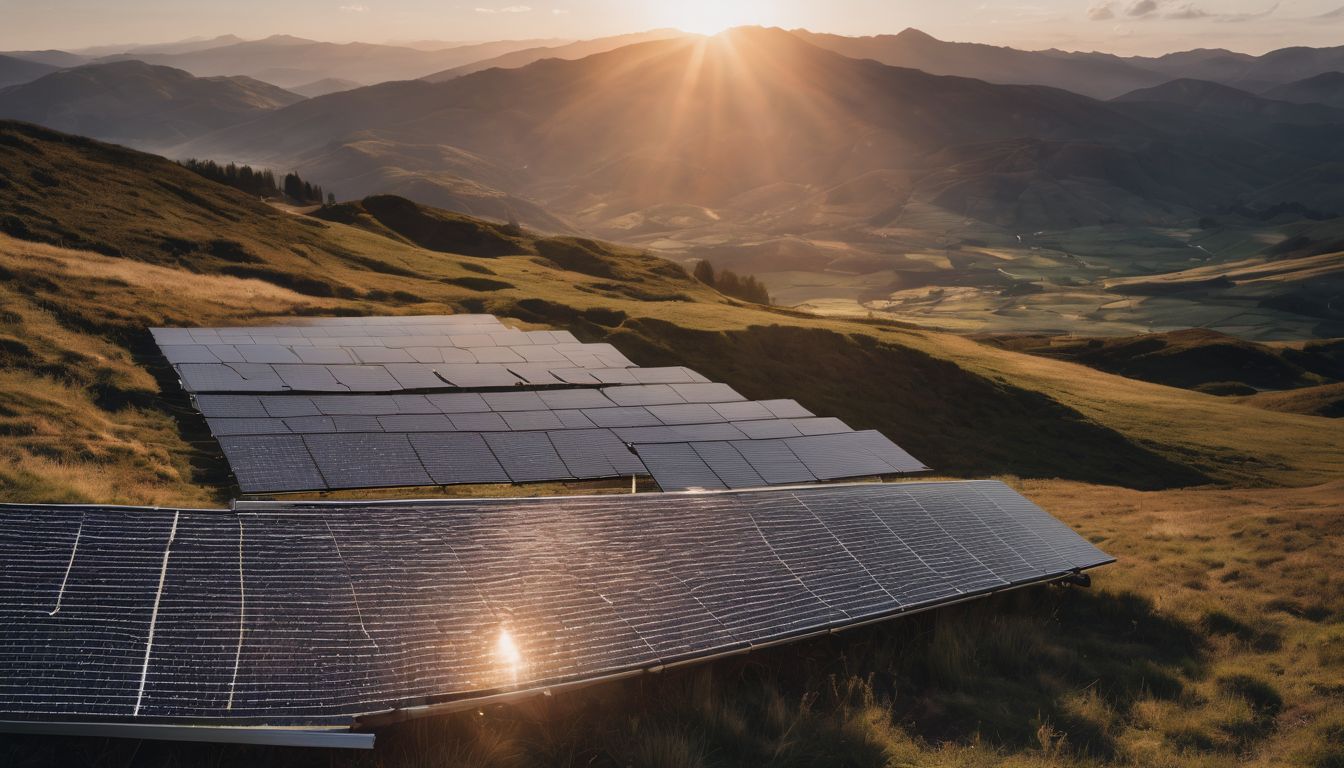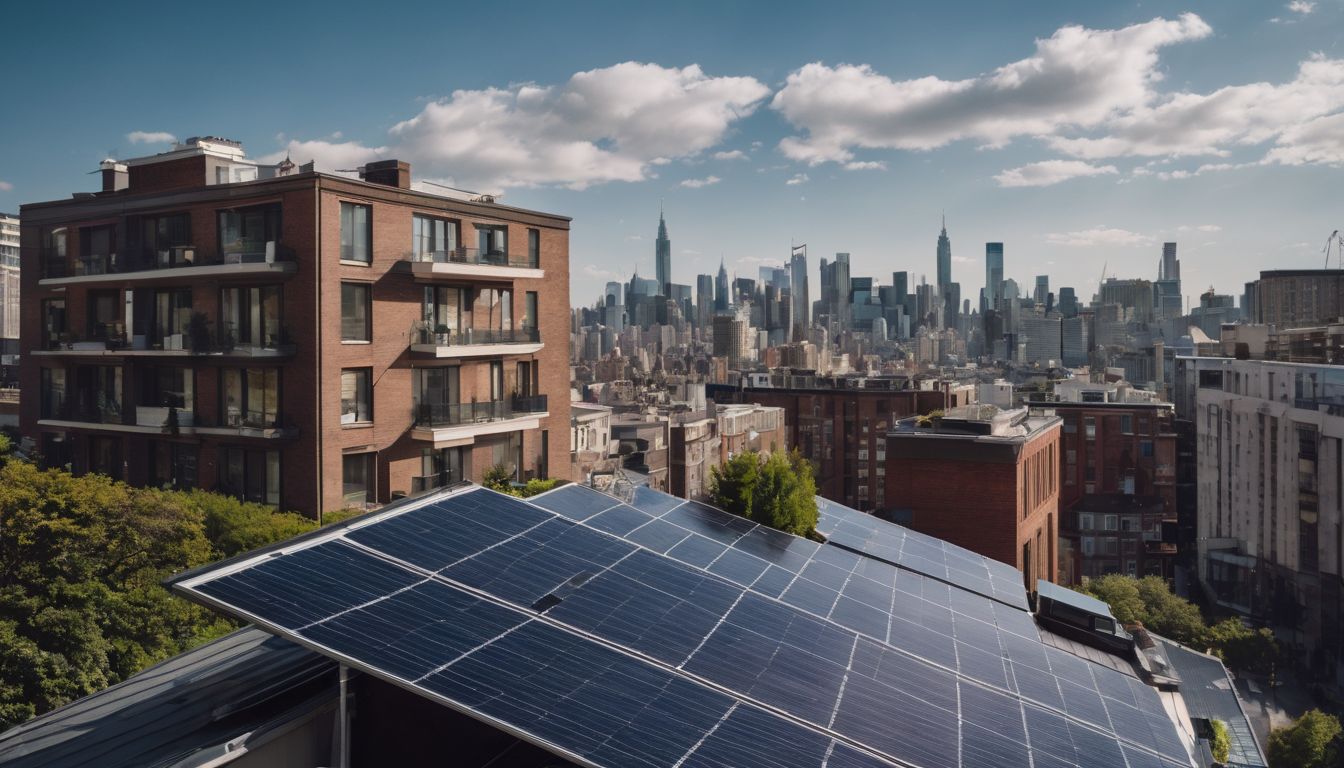Struggling to lower your energy bills and make a positive impact on the environment? Community solar projects offer a shared solution that’s gaining ground around the world. This post will guide you through the advantages of joining forces with neighbours to harness the power of the sun.
Discover how together, we can shine brighter!
Key Takeaways
- Community solar projects allow people to use renewable energy without any upfront costs, making clean energy accessible to more individuals, including those in low-income or rented accommodation.
- Subscribers of community solar can save money on their electricity bills and reduce their environmental footprint by receiving credits for the energy produced from shared solar arrays.
- By joining a community solar project, you support local job creation and contribute towards reducing reliance on fossil fuels, thus aiding the fight against climate change.
- These projects help promote environmental justice by ensuring that all members of a community have equal access to the economic and environmental benefits of renewable energy.
- Although there are many advantages, one downside is that participants may not receive tax incentives available for private rooftop installations, and availability might be limited depending on location.
What is Community Solar?
Moving on from the introduction, community solar brings a unique approach to harnessing solar energy. It’s a program where multiple people share the benefits of a single, large-scale solar array.
Participants in these programs can subscribe to a portion of the power produced without having to install their own rooftop panels. This opens up renewable energy access to those who may not have suitable roofs or live in apartments and shared buildings.
The concept is simple yet powerful: instead of going it alone, members of a community join forces to build or sponsor a set of solar panels located offsite. They then receive credits on their electricity bills for their share of the power that’s generated.
Community solar projects are sprouting up worldwide, allowing more individuals and families to contribute to sustainable development while reaping electricity savings and supporting local investment.
How Community Solar Benefits People, Local Economies & the Planet
Community solar benefits people by providing access to renewable energy without the upfront costs, helping them save on their electricity bills. It also supports local economies by creating jobs and reducing reliance on fossil fuels, while promoting environmental justice and sustainability for the planet.
No upfront costs to enroll
Enrolling in a community solar project doesn’t require any upfront costs. By participating, you can access clean energy without the financial barrier of installing your system. This makes renewable energy more accessible to everyone, regardless of their financial situation or housing status.
Subscribing to a community solar project allows individuals to support sustainable energy development and enjoy the benefits of solar power without having to pay an initial investment.
The absence of upfront costs makes it easier for low-income communities to participate in renewable energy initiatives, thereby promoting environmental justice and wealth-building opportunities for those who may not have been able to afford traditional rooftop solar installations.
Savings on electricity costs
Community solar projects offer significant savings on electricity costs. By subscribing to a local solar project, participants receive credits on their electricity bills, reducing their monthly expenses.
This not only benefits individual households but also contributes to the overall economic well-being of low-income communities. Additionally, by harnessing the power of renewable energy through community solar, individuals can actively participate in promoting environmental sustainability while saving money.
Moreover, joining a community solar initiative allows renters and homeowners without suitable rooftops for solar panels to enjoy cost savings from solar energy. The resulting reduction in reliance on traditional fossil fuels offers immediate financial relief and ensures a more sustainable future for all members of the community involved in these projects.
Increased accessibility to renewables
Community solar projects increase accessibility to renewables, providing more people with the opportunity to benefit from clean energy. By allowing individuals and communities to subscribe to a shared solar project, even those who cannot install solar panels on their own property can access renewable energy.
This accessibility helps in reducing reliance on fossil fuels and contributes positively towards the environment while also enabling more diverse communities to take part in the green energy movement.
Moreover, increased accessibility to renewables promotes environmental justice by ensuring that low-income neighborhoods have equal opportunities for wealth building through participation in renewable energy development.
Promotes environmental justice
By providing access to clean and renewable energy for underserved communities, community solar projects actively promote environmental justice. This means that low-income neighborhoods can benefit from the financial savings and environmental advantages of solar energy without needing to install panels on their own properties.
The fair distribution of these benefits ensures that everyone has the opportunity to participate in and contribute to sustainable energy solutions, creating a more equitable and environmentally just society.
Creates local jobs
Community solar projects are a vital source of local employment, creating jobs in installation, maintenance, and ongoing operations. These initiatives not only contribute to the growth of the renewable energy sector but also provide residents with valuable opportunities for stable employment within their own communities.
By hiring and training local workers, community solar projects foster economic development and empower individuals with the skills needed to thrive in the growing green economy.
Furthermore, these jobs support families by providing steady income and benefits while simultaneously reducing reliance on fossil fuels. As more individuals become involved in community solar projects, more job opportunities arise that contribute to long-term sustainable economic growth within low-income neighborhoods.
Reduces reliance on fossil fuels
By generating clean and renewable energy, community solar projects contribute to reducing reliance on fossil fuels. The use of alternative energy sources such as solar power decreases the demand for traditional non-renewable resources like coal, oil, and natural gas, thereby lessening the environmental impact associated with their extraction and consumption.
This shift towards cleaner energy helps in combating climate change by reducing greenhouse gas emissions while contributing to a more sustainable future.
Furthermore, the adoption of community solar initiatives supports the transition towards a more environmentally friendly society by encouraging greater investment in renewable energy technologies.
How to Get Involved in Community Solar
Community solar projects allow you to benefit from renewable energy without installing solar panels on your property. Here’s how to get involved:
- Find a local community solar project that offers subscriptions for residents in your area.
- Review the terms and conditions of the subscription, including the contract length and payment structure.
- Enroll in the community solar project by signing up for a subscription and agreeing to the terms outlined by the provider.
- Receive credits on your electricity bill based on your share of the energy generated by the community solar project.
- Enjoy the environmental benefits and cost savings while supporting renewable energy initiatives in your community.
Pros and Cons of Community Solar
Community solar offers lower electricity costs and is a good option for renters and condo owners, with flexible contract terms. However, it does not come with tax incentives and may have limited availability in some areas.
Pros: Lower electricity costs, good for renters and condo owners, flexible contract terms
Lower electricity costs are a key advantage of community solar projects. This means that participants can enjoy savings on their electricity bills without needing to invest in expensive solar panel installations.
It’s particularly beneficial for renters and condo owners who may not have the option or ability to install solar panels on their properties themselves. The flexible contract terms offered by community solar projects provide additional convenience, allowing subscribers to easily adjust their participation according to their changing needs.
These benefits make community solar an attractive option for those looking to reduce their carbon footprint and save money on energy expenses while enjoying flexibility in their renewable energy choices.
Cons: No tax incentives, large solar farms, limited availability
Community solar projects may not offer tax incentives, as they are usually reserved for individual solar installations. Additionally, some community solar projects involve large-scale farms, which may not be appealing to everyone due to concerns about aesthetics or the impact on local landscapes.
Another downside is limited availability; in some areas, access to community solar projects may be restricted due to capacity constraints or lack of suitable locations for new installations.
Conclusion
In conclusion, getting involved in a community solar project is an excellent way to support renewable energy and save money on electricity bills. Subscribing to a solar project promotes the growth of local economies by creating job opportunities and increasing accessibility to clean energy.
It also contributes to environmental justice by reducing reliance on fossil fuels and supporting low-income communities. With no upfront costs and potential savings, community solar projects offer an inclusive approach for individuals looking to participate in the transition towards sustainable energy solutions.
FAQs
1. What are community solar projects and who can they benefit?
Community solar projects are initiatives where people subscribe to a local photovoltaic system, providing energy credits and electricity bill savings to participants, often benefiting low-income communities.
2. How do community solar projects create jobs?
Community solar projects generate job creation opportunities as they require skilled workers for the construction, maintenance, and management of the photovoltaic systems.
3. Can joining a community solar project reduce my electricity bill?
Yes! By subscribing to a community solar project, you could earn electricity bill credits which will lead to savings on your monthly energy costs.
4. Why are community solar projects important for wealth-building in low-income neighborhoods?
Community solar projects contribute to wealth-building by allowing residents in low-income neighborhoods access to renewable energy benefits without the need for upfront investment in their own systems.





